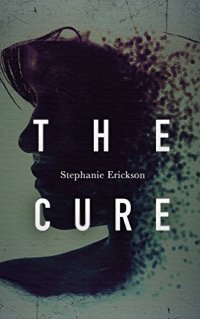“One life will make the difference.” Macey Holsinger has heard that promise for as long as she can remember. But it hasn’t saved anyone yet, not even her little brother.
Little is known about the disease, except that it’s a rapid and absolute killer. Countless lives have been claimed in the last hundred years, and government scientists are working hard to stop the spread through human experimentation. Testing has killed nearly as many people as the disease and, to Macey at least, it seems like they’re no closer to a cure.
At sixteen, conformity to the government’s idea of “sacrifice for the greater good” is a difficult concept for Macey. Shocked by how many aspects of life the disease controls, she faces her own testing reluctantly.
Macey feels alone as questions plague her about things that are simply a way of life for most. Questions no one else thinks to ask. Why is the quest for a cure reason enough to ban things like flags and freedom of expression? How can death be justified with more death? In the end, how much will the cure cost, and why is Macey the only one who thinks the price is too high?
Answers evade her until she’s left with only one question… How much will she sacrifice in the name of the cure?
Free on 27th - 31st Mar 15

Reviews:
"For an undemanding YA read it may do, but for a critical or enquiring mind and especially anyone with a knowledge of virology, the last section is painfully disappointing. "
Reviewer: Reader for Bookangel.
In a world where a virus kills ten percent of the population everyone is a guinea pig, used for medical tests every ten years until they eventually die. No one makes it to sixty. Maisie, an art student, is sixteen, just starting on life, when she finds her test date has been brought forward. She might not live to see twenty.
The first half of this book was a really good book. Maisie's coming to terms with her impending death from medical testing two years before it was normally due, her struggles with a career and the constrictions of her society are well written and you can really feel for her. The loss of friends and family to the tests and the disease, accepted as normal by the culture she lives in if not by the grieving survivors, rings brutally true. The utter inhumanity of the scientists only makes matters worse, but then in a society where everyone is a guinea pig, how much does the individual matter?
While it is not about the background, it's about a girl who learns she has two years less to live than she thought, much of the technology described is behind today's. While that may not be intentional on the part of the author, society recovering from a war would explain the setback. Australia and New Zealand apparently fell to China without a fight because the US didn't get involved. The problem is that in that area there are certain nuclear powers who would have reacted badly to that expansionism who aren't the US - like the USSR, India, etc - who are actually more likely to use them.
This good setup is let down by the last quarter of the book in which, despite knowing that a positive attitude improves subjects' survival chances 10%, scientists act in ways designed to shorten their subject's lifespan, maximise stress, reduce the effectiveness of her immune system, and any vaccine they could make from her, and completely forget that they are going to need children at some point (and artificial insemination requires drugs that would interfere with the tests). Despite saying they are locking her up to protect her, they let her walk around unprotected so she can do a Walk of Shame back to the base. Might as well just let her go home and give her a body guard.
The Christ parallel at the end is levered in and painfully unsubtle. By the logic of this book, Christ's name should never have been mentioned again (Maisie's won't be), so no Bible and no Christian faith. In some ways this seems to be a retelling of the email glurge about the parent who's child's blood can cure an out of control plague, but who will die doing it. That was 500 words. This is 500 pages.
This book actually annoys me. There's a real world parallel, you see. One man in the world who's blood provides a cure to a disease with a 100% fatality rate. And instead of being locked up when the doctors learned this, he went back to his family, lived a perfectly normal life and gave enough blood to save 2.4 million people, including his own grandchild, while contributing to the development of an artificial drug so that when he died there would be a way to save everyone with the condition. Look up James Harrison, the man with the golden arm (Wikipedia).
For an undemanding YA read it may do, but for a critical or enquiring mind and especially anyone with a knowledge of virology, the last section is painfully disappointing.
Rating: 2Quicklink to this review
Top - Reviews - Update Details
Third Party Reviews:
No reviews yet. Why not link one?
You can suggest a blog review here





